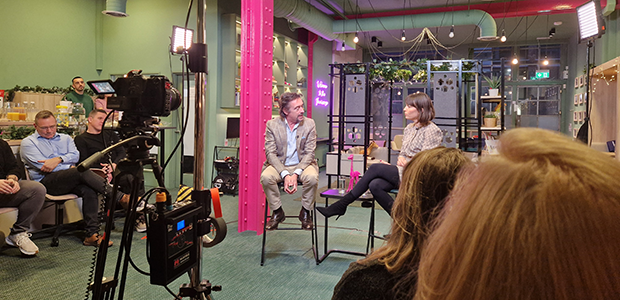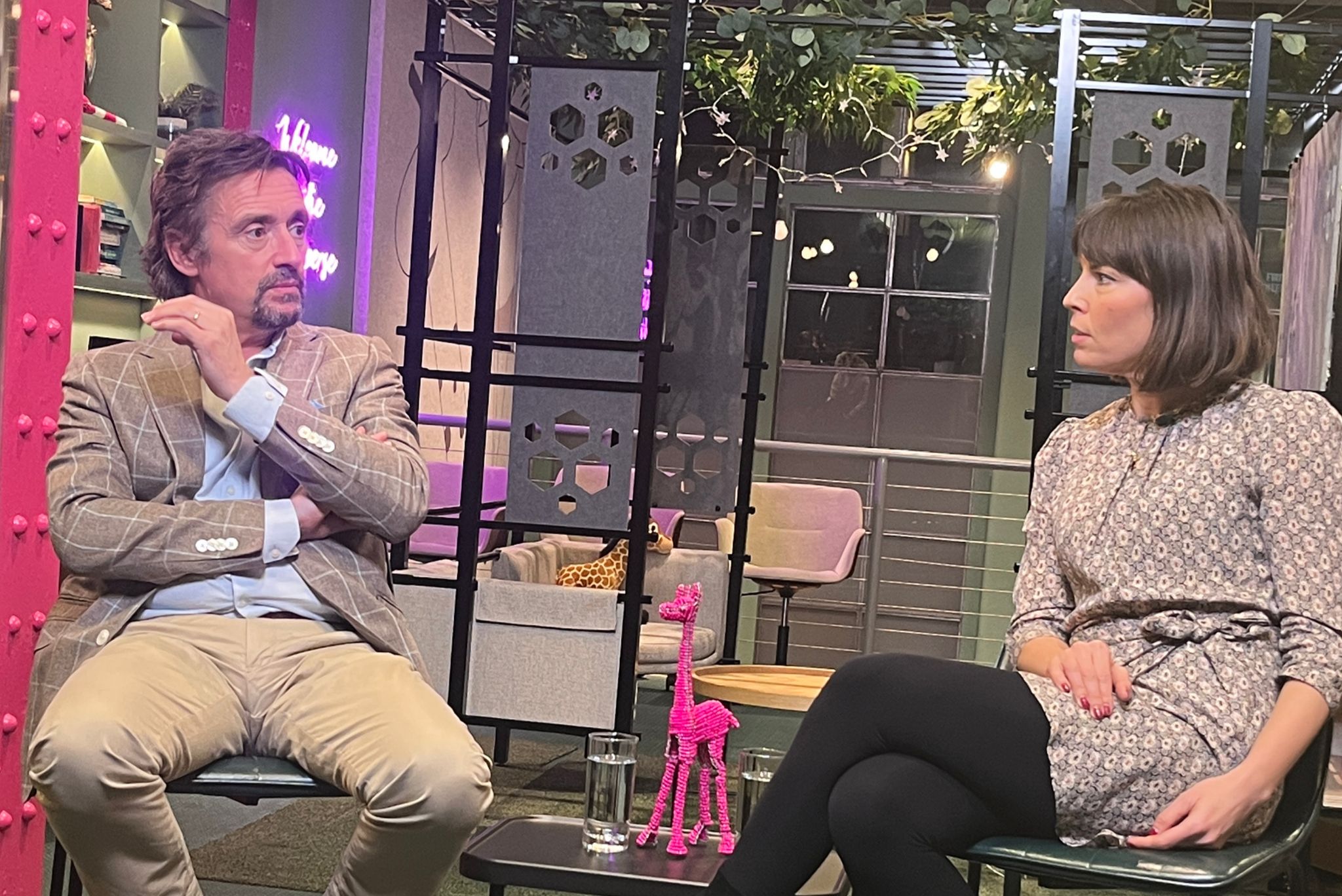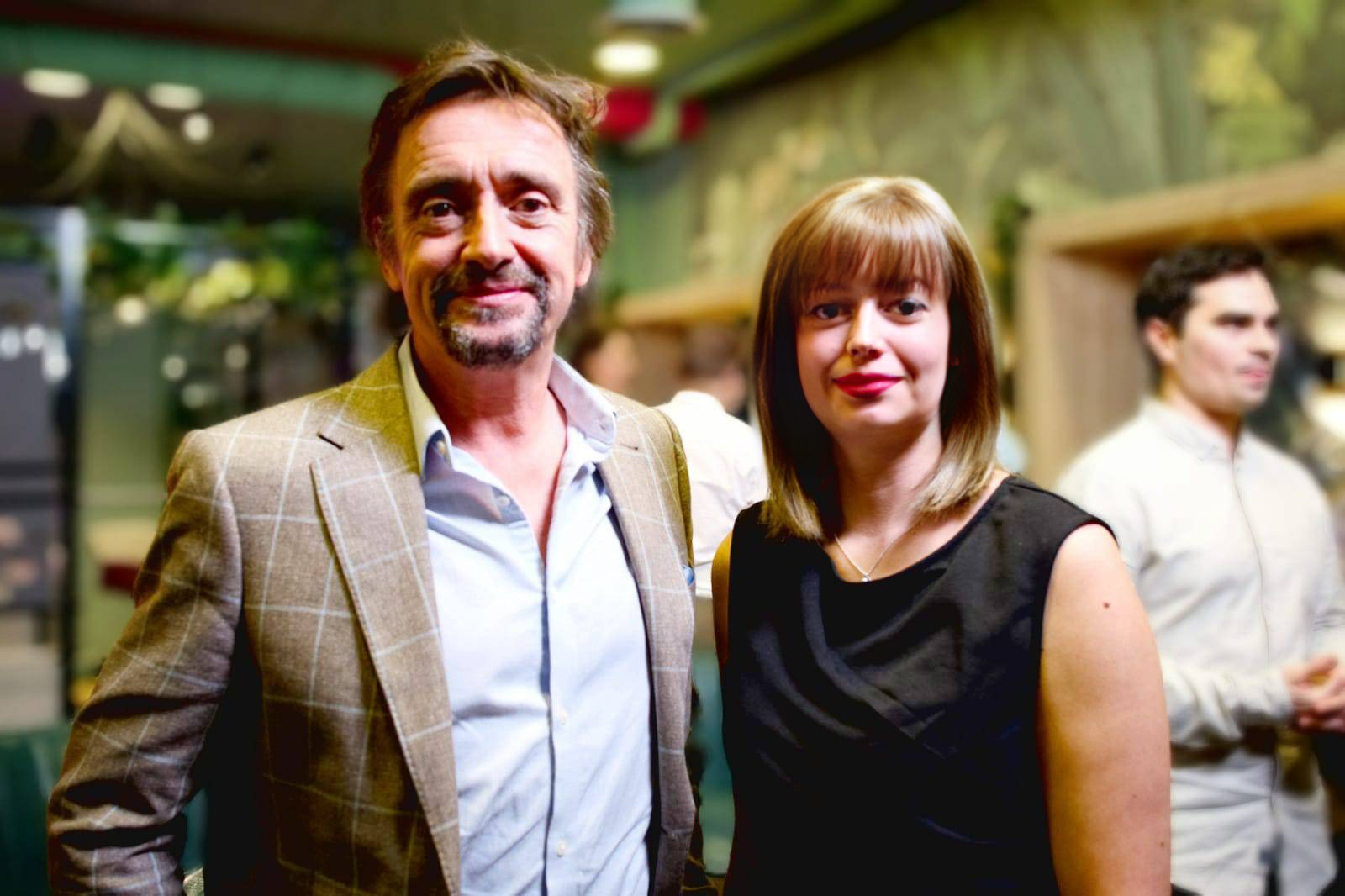
Richard Hammond: a journey of resilience and recovery
In 2006, Richard Hammond’s life changed in an instant during a high-speed crash that left him with a severe brain injury.
I recently attended a talk, organised by MetLife and YuLife, where Hammond shared insights into his recovery journey and how organisations and employers can support those who have suffered a traumatic experience.
The crash: a life-altering event
Hammond recounted the moments leading up to the crash: “At 319mph, the front right tyre delaminated. I remember thinking, ‘Now I die.’ It wasn’t scary – it was just a moment of acceptance.”
Following the crash, Hammond was airlifted to hospital, where his long recovery began. The brain injury’s immediate effects were confusion and memory loss, compounded by the challenge of recognising the extent of his own damage.
Hammond’s recovery was a slow and introspective process. He described the early days of grappling with confusion and emotional turbulence, which required acceptance of his new reality.
“It’s about recognising that some of these moods and fears aren’t real. Accepting that was huge,” he shared.
Progress came in small increments. Years after the crash, Hammond reflected on his journey, saying: “Recovery isn’t a path – it’s life. It becomes one of the many experiences that shape who you are.”

Physical and mental integration
For Hammond, the relationship between physical and mental recovery was inseparable. Although he hadn’t sustained major physical injuries, he emphasised the impact of exercise on mental health.
“I’ve always ran – not for my body, but for my brain. It’s about self-maintenance,” he said, advocating for the accessibility of exercise in promoting wellbeing.
Hammond’s return to work was both a necessity and a challenge. As he explained: “My work is unusual – I’d already defined myself by it. But coming back wasn’t easy. A brain injury is deeply personal and blending that with professional life takes time.”
Support from colleagues, including his Top Gear co-presenters Jeremy Clarkson and James May, proved invaluable. Reflecting on their camaraderie, Hammond said: “They were amazing. The process of getting back to work requires understanding and patience from everyone involved.”
Lessons in resilience
Hammond had another serious crash in 2017, and following that, he credits mindfulness and self-awareness as key to navigating life’s challenges.
“I made a decision early on: let’s make this a good thing. Anything that happens to you, good or bad, is a fork in your road. Your reaction defines how it shapes you.”
For those grappling with trauma or illness, Hammond emphasised the importance of setting a personal pace for recovery: “There’s no normal to aspire to – your recovery is unique. It’s full of opportunity because wherever you’re starting from is where you are.”
The role of support networks
Hammond acknowledged the ripple effects of his recovery on family and colleagues. He stressed the importance of support systems for both the individual and their wider network.
“You have a duty of care not just to the person recovering but also to those around them,” he said, noting the emotional toll recovery takes on loved ones.

A more mindful approach
Hammond’s experiences have inspired a shift in his perspective on life. He said: “It’s made me more patient, more aware, and more confident in pursuing a mindful approach to living. Once you get past the dignity of being hurt, it’s about continuing to try to be a better person.”
He also highlighted the need for employers to take a holistic approach when supporting employees in recovery. He said: “If you have any duty of care and responsibility towards somebody, support the whole person. It’s important to give them peace and space to express themselves, as they’re already under significant stress.”
This empathetic approach ensures employees feel safe to share their needs, allowing employers to make meaningful accommodations.
Hammond emphasised that helping an employee return to work is a considerable responsibility for any employer. He remarked: “It’s a really big job as an employer, whatever role you play in someone’s life. Helping them back into work, whether they’re hurt emotionally or physically, is deeply personal. Bringing that personal hurt to work is hard.”
Employers who foster an understanding and supportive environment can ease the challenges of returning to professional life. Patience and sensitivity are key to making recovery at work possible. This balance of proactive support and respectful patience creates a foundation for successful reintegration.
Final thoughts
Richard Hammond’s story is a testament to resiliency. His journey serves as a reminder that recovery, whether physical or emotional, is a deeply personal process, requiring patience, acceptance, and the support of those around us.
Overall, Hammond’s insights underscored the need for coordinated, empathetic support from both employers and personal networks to facilitate effective recovery and return-to-work.
YuLife’s Head of Wellbeing & Propositions, Kate Whitelock, who hosted the session, highlighted the urgency of addressing workplace reintegration: “Workplace absenteeism is at an all-time high, with employees averaging 7.8 days absence per year, driven by issues like mental health and musculoskeletal concerns. The struggling NHS is slowing rehabilitation and recovery rates, which is why MetLife and YuLife have joined forces to create a new group income protection proposition focused on effective recovery, return-to-work support, and fostering healthy, resilient organisations. [Richard’s] experiences on how to support someone on that recovery journey couldn't be more relevant."

